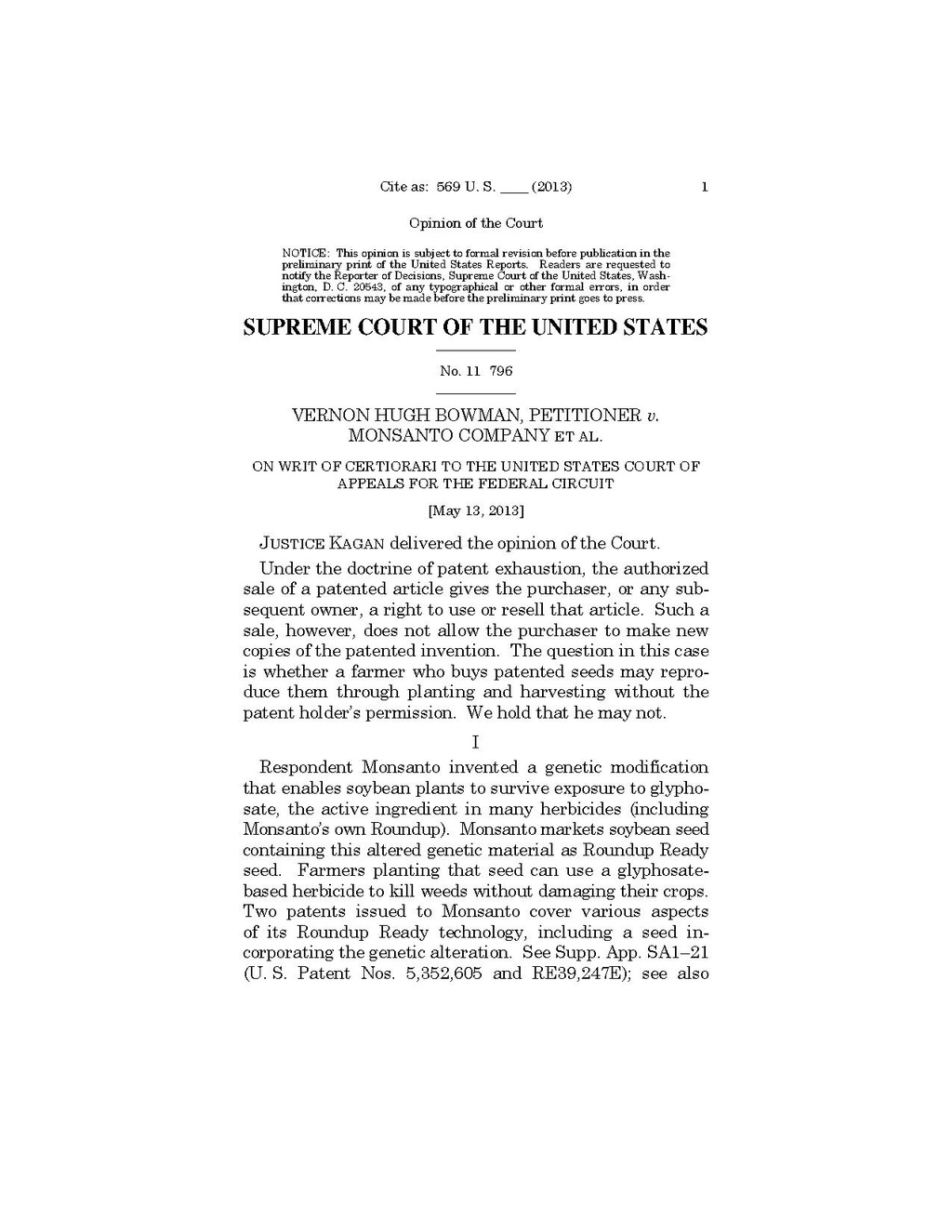Opinion of the Court
NOTICE: This opinion is subject to formal revision before publication in the preliminary print of the United States Reports. Readers are requested to notify the Reporter of Decisions, Supreme Court of the United States, Washington, D. C. 20543, of any typographical or other formal errors, in order that corrections may be made before the preliminary print goes to press.
SUPREME COURT OF THE UNITED STATES
No. 11 796
VERNON HUGH BOWMAN, PETITIONER v.
MONSANTO COMPANY ET AL.
ON WRIT OF CERTIORARI TO THE UNITED STATES COURT OF APPEALS FOR THE FEDERAL CIRCUIT
[May 13, 2013]
Justice Kagan delivered the opinion of the Court.
Under the doctrine of patent exhaustion, the authorized sale of a patented article gives the purchaser, or any subsequent owner, a right to use or resell that article. Such a sale, however, does not allow the purchaser to make new copies of the patented invention. The question in this case is whether a farmer who buys patented seeds may reproduce them through planting and harvesting without the patent holder’s permission. We hold that he may not.
I
Respondent Monsanto invented a genetic modification that enables soybean plants to survive exposure to glyphosate, the active ingredient in many herbicides (including Monsanto’s own Roundup). Monsanto markets soybean seed containing this altered genetic material as Roundup Ready seed. Farmers planting that seed can use a glyphosate based herbicide to kill weeds without damaging their crops. Two patents issued to Monsanto cover various aspects of its Roundup Ready technology, including a seed incorporating the genetic alteration. See Supp. App. SA1–21 (U. S. Patent Nos. 5,352,605 and RE39,247E); see also
